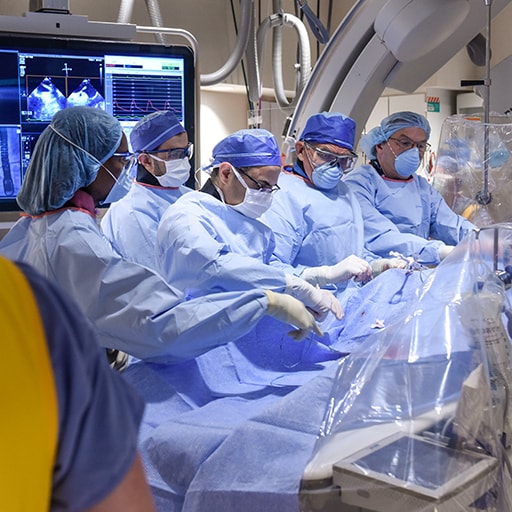Cardiology care tips for an optimal cardiovascular life
Recognizing the Value of Cardiology in Modern Healthcare Services
Cardiology plays an important function in contemporary medical care, particularly as heart problem proceeds to be the leading source of death worldwide. Developments in diagnostics and therapy have transformed patient care, making it possible for earlier interventions and boosted end results. Moreover, the change in the direction of preventive cardiology empowers people to handle their wellness proactively. As innovation proceeds to advance, the combination of ingenious solutions might further redefine cardiology's effect on public health, prompting a better assessment of arising trends and their ramifications.
The Frequency of Heart Condition and Its Effect on Public Wellness
Although heart disease stays the leading cause of death globally, its influence extends far past specific patients to influence public wellness systems and economic situations. The high prevalence of heart problem puts a substantial pressure on medical care resources, necessitating enhanced financing for treatment, recovery, and prevention programs. Public health initiatives need to address threat aspects such as excessive weight, smoking, and inactive way of lives, which contribute significantly to the increasing occurrence of heart conditions.Moreover, the financial worry related to heart problem is tremendous, incorporating not just straight clinical expenses but additionally indirect expenditures associated with lost performance and premature mortality. Areas deal with challenges in handling these expenses, commonly leading to disparities in medical care accessibility and outcomes. As the populace ages and lifestyle-related dangers remain to rise, the urgency for efficient cardiology treatments comes to be extremely important. Dealing with heart illness is not only a matter of individual health but also a crucial public health priority.
Advancements in Cardiac Diagnostics and Imaging Techniques
Recent advancements in heart diagnostics and imaging strategies have actually changed the area of cardiology, improving the capability to discover and keep an eye on cardiovascular disease. Methods such as cardiac MRI, CT angiography, and echocardiography have actually come to be progressively advanced, offering detailed photos of heart structures and functions. These methods permit for the very early identification of problems like coronary artery illness, cardiac arrest, and valvular disorders.Moreover, advancements in non-invasive diagnostics, such as wearable technology and remote surveillance gadgets, have encouraged individuals and healthcare providers. These devices help with real-time monitoring of heart rhythms and other essential indicators, bring about prompt interventions. Additionally, expert system is being incorporated right into imaging analysis, boosting accuracy and performance in diagnosis.
Advancements in Treatment Options for Heart Issues
Recent improvements in cardiology have actually led to considerable advancements in treatment alternatives for heart conditions. These include innovative medical methods that enhance procedural end results and emerging drugs that provide brand-new avenues for therapy. As the area develops, these technologies play an important duty in improving individual care and results.
Advanced Surgical Techniques
Technologies in surgical methods have actually transformed the landscape of cardiology, offering brand-new wish for people with heart problems. Minimally invasive procedures, such as catheter-based interventions, have actually substantially decreased healing times and hospital stays. Methods like robotic-assisted surgical treatment boost accuracy, permitting doctors to navigate complex anatomical structures with higher accuracy. Moreover, innovations in imaging modern technology facilitate real-time visualization during procedures, improving outcomes. Transcatheter aortic valve replacement (TAVR) exhibits a breakthrough in dealing with aortic constriction, making it possible for shutoff substitute without open-heart surgical treatment. Furthermore, hybrid techniques that integrate surgical and catheter-based methods give customized remedies for numerous cardiac issues. These advanced surgical strategies not just improve client safety yet additionally broaden treatment options, emphasizing the essential duty of advancement in modern cardiology practices.
Arising Medicines and Therapies
As the landscape of cardiology remains to progress, arising medicines and therapies play a critical duty in improving treatment alternatives for heart problems. Developments such as unique anticoagulants and advanced lipid-lowering agents have actually transformed the administration of cardiovascular conditions, considerably reducing person morbidity and mortality. In addition, the advancement of genetics treatments and regenerative medication offers appealing avenues for dealing with conditions previously regarded permanent. Clinical tests are continually exposing the efficacy of these therapies, pressing the boundaries of standard treatments. The assimilation of digital wellness innovations helps with tailored medicine, permitting for customized therapy strategies based on hereditary and lifestyle elements. Jointly, these innovations underscore the dynamic nature of cardiology, enhancing individual end results and redefining standards of care in contemporary health care.
The Function of Preventive Cardiology in Person Treatment
Preventive cardiology plays a vital function in individual treatment by concentrating on the recognition of threat factors that contribute to heart problem. Through lifestyle adjustment techniques and early detection strategies, doctor can effectively reduce the incidence of cardiovascular occasions - Cardiology Jupiter. This aggressive technique not only improves patient results however likewise promotes long-term health
Risk Variable Recognition
While cardiovascular conditions continue to be a leading reason for morbidity and mortality worldwide, reliable threat aspect recognition functions as a cornerstone of preventative cardiology. Recognizing danger elements such as hypertension, hyperlipidemia, diabetes mellitus, and family members history is important for very early treatment. Healthcare specialists use various evaluating techniques to examine these variables, permitting customized preventive actions. Furthermore, recognizing an individual's lifestyle selections, such as smoking and physical lack of exercise, further notifies risk analyses. This extensive evaluation enables medical professionals to develop individualized treatment plans focused on mitigating dangers. By focusing on danger factor recognition, healthcare systems can improve individual outcomes and lower the total problem of cardio illness, inevitably contributing to enhanced public wellness techniques and resource allocation.
Way Of Living Modification Techniques
A wide range of researches highlights the essential function of way of life alteration approaches in decreasing cardio disease danger. These methods encompass nutritional changes, raised exercise, smoking cigarettes cessation, and weight monitoring. By adopting a heart-healthy diet rich in fruits, vegetables, whole grains, and lean proteins, individuals can reduce cholesterol levels and high blood pressure. Routine physical task enhances the heart and enhances general cardio health and wellness. In addition, giving up smoking cigarettes substantially lowers the threat of heart condition and boosts recuperation prices for those with status quo. Weight monitoring better adds to cardio health and wellness by alleviating other risk factors such as diabetes and high blood pressure. Applying these way of living transforms not only promotes individual health yet likewise serves as a cornerstone of preventive cardiology in person treatment.
Early Detection Strategies
Way of living adjustments significantly add to lowering cardio illness risks, yet they are most efficient when coupled with early discovery methods. Preventive cardiology stresses the importance of identifying possible heart problems before they rise right into major conditions. Strategies such as blood Extra resources stress tracking, cholesterol screening, and progressed imaging modern technologies like echocardiograms play important roles in reviewing cardiovascular wellness. Biomarkers and genetic screening also boost the precision of very early detection, permitting tailored precautionary strategies. Routine heart danger evaluations equip doctor to interfere proactively, potentially protecting against cardiovascular disease and strokes (Cardiology Jupiter). By incorporating these very early discovery methods right into regular care, individuals can gain from prompt lifestyle treatments and targeted therapies, ultimately enhancing and enhancing results lifestyle
Integrating Innovation Into Cardiology Practices
As advancements in innovation proceed to improve numerous fields, the integration of ingenious devices and systems right into cardiology techniques has ended up being essential for enhancing client care and results. Telemedicine systems allow cardiologists to check patients remotely, improving access to care while decreasing the problem on medical care centers. Wearable tools, such as smartwatches, allow constant heart price monitoring, notifying both doctors and clients to prospective issues in real-time. Furthermore, synthetic intelligence (AI) is being made use of to examine huge quantities of cardiac data, assisting in very early medical diagnosis and tailored therapy strategies. Advanced imaging methods, including 3D echocardiography, enhance visualization of heart frameworks, bring about extra exact treatments. Electronic health documents (EHRs) simplify person info administration, guaranteeing that cardiologists have immediate accessibility to critical information. Together, these technical innovations are changing cardiology, promoting aggressive monitoring and enhanced health end results for individuals with cardiovascular conditions.
The Importance of Person Education and Involvement
Individual education and interaction play a pivotal duty in the management of cardio health. By furnishing patients with understanding about their conditions, therapy options, and way of living changes, doctor equip people to take an active function in their treatment. This proactive method can cause improved adherence to prescribed medications, dietary modifications, and workout regimens, ultimately decreasing the threat of complications.Engagement additionally fosters a strong patient-provider connection, urging open interaction and count on. When patients feel notified and involved, they are a lot more likely to voice issues and ask questions, which can cause far better medical results. Furthermore, academic sources, such as workshops or electronic systems, can boost understanding and promote self-management methods. Generally, focusing on person education and learning and involvement is crucial for improving cardiovascular health and wellness, enhancing lifestyle, and lowering health care expenses related to cardiovascular diseases.
Future Trends in Cardiology and Their Prospective Effect

Frequently Asked Questions
What Way Of Living Adjustments Can Minimize Heart Problem Danger?
The current inquiry addresses way of living modifications that can substantially reduce heart disease threat. Cardiologist near me. Embracing a balanced diet regimen, participating in regular physical activity, preserving a healthy weight, handling anxiety, and preventing tobacco can notably improve cardio health
Just How Can I Identify Early Indications of Heart Issues?
Acknowledging early indicators of heart troubles entails surveillance symptoms such as chest pain, shortness of breath, exhaustion, and irregular heart beat. Timely recognition of these signs can trigger essential medical evaluation and treatment for far better outcomes.
What Are the Distinctions Between Cardiologists and Heart Surgeons?
The differences between cardiologists and cardiac surgeons depend on their duties; cardiologists mainly take care of and diagnose heart conditions via non-invasive approaches, while heart surgeons do procedures to remedy architectural heart issues. Each plays an important, distinctive role.

How Often Should I Obtain My Heart Wellness Checked?
The regularity of heart medical examination varies based upon specific danger elements. Generally, grownups must undergo evaluations each to two years, while those with status quo may require even more regular evaluations as recommended by healthcare specialists.
What Function Does Genes Play in Heart Condition Risk?
Genetics considerably affects cardiovascular find more information disease risk, with familial More Help patterns indicating acquired conditions. Details genes can incline individuals to hypertension, cholesterol concerns, and other cardio issues, highlighting the importance of hereditary screening in reviewing heart health and wellness. Heart condition stays the leading reason of death around the world, its impact expands far past private patients to impact public wellness systems and economic climates. Public wellness initiatives need to address danger variables such as weight problems, smoking cigarettes, and sedentary way of lives, which add greatly to the increasing occurrence of heart conditions.Moreover, the economic concern connected with heart disease is enormous, including not just direct clinical costs yet also indirect expenditures associated to shed efficiency and early mortality. Preventive cardiology plays a crucial function in person care by concentrating on the recognition of danger factors that add to heart disease. Artificial knowledge (AI) and maker knowing are enhancing diagnostics and client tracking, allowing very early discovery of heart diseases. The distinctions between cardiologists and cardiac cosmetic surgeons exist in their duties; cardiologists mainly diagnose and take care of heart conditions via non-invasive methods, while heart doctors carry out surgical treatments to deal with structural heart concerns.